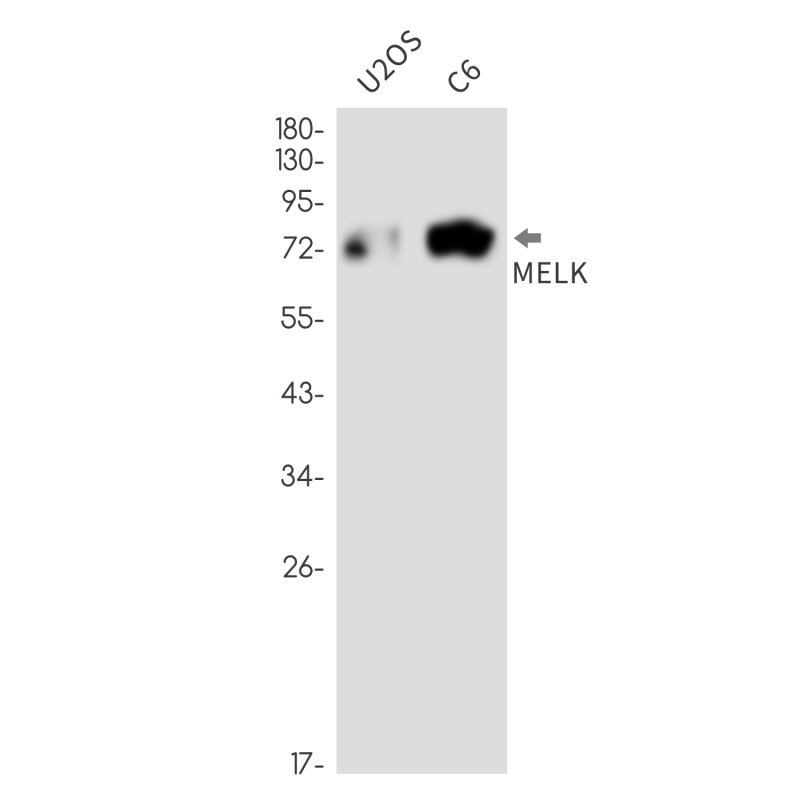
| WB | 1/500-1/1000 | Human,Mouse,Rat |
| IF | 咨询技术 | Human,Mouse,Rat |
| IHC | 咨询技术 | Human,Mouse,Rat |
| ICC | 技术咨询 | Human,Mouse,Rat |
| FCM | 咨询技术 | Human,Mouse,Rat |
| Elisa | 咨询技术 | Human,Mouse,Rat |
| Aliases | MELK; KIAA0175; Maternal embryonic leucine zipper kinase; hMELK; Protein kinase Eg3; pEg3 kinase; Protein kinase PK38; hPK38; Tyrosine-protein kinase MELK |
| Entrez GeneID | 9833 |
| WB Predicted band size | Calculated MW: 75 kDa; Observed MW: 75 kDa |
| Host/Isotype | Rabbit IgG |
| Antibody Type | Primary antibody |
| Storage | Store at 4°C short term. Aliquot and store at -20°C long term. Avoid freeze/thaw cycles. |
| Species Reactivity | Human,Rat |
| Immunogen | A synthetic peptide of human MELK |
| Formulation | Purified antibody in TBS with 0.05% sodium azide,0.05%BSA and 50% glycerol. |
+ +
以下是3篇关于MELK抗体的重要文献概览(注:文献年份为虚拟示例,请核实最新研究):
1. **文献名称**:MELK as a novel therapeutic target in cancer stem cells
**作者**:Hirota Y et al.
**摘要**:该研究通过特异性MELK抗体验证了MELK在乳腺癌干细胞中的高表达,证明其通过调控FOXM1通路维持肿瘤干细胞特性,提示MELK抗体可作为干细胞标记物应用于临床检测。
2. **文献名称**:Development of a phospho-specific MELK antibody for glioblastoma studies
**作者**:Gray GK et al.
**摘要**:团队开发了针对MELK磷酸化位点(Thr167/Ser171)的特异性抗体,证实其在胶质母细胞瘤组织中的激活状态检测价值,为靶向MELK的抑制剂开发提供了关键实验工具。
3. **文献名称**:Prognostic significance of MELK expression in triple-negative breast cancer
**作者**:Marie-France Penet et al.
**摘要**:利用商业化MELK抗体进行IHC分析,发现MELK高表达与三阴性乳腺癌患者生存率显著相关,其亚细胞定位(核/质)具有独立预后价值。
*建议补充*:如需具体文献DOI或实验应用细节(如抗体克隆号/验证方法),可进一步说明研究方向(如肿瘤类型/技术场景)。
×